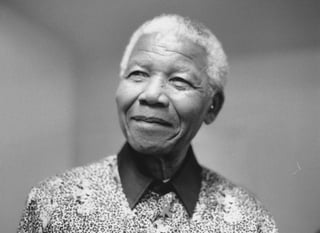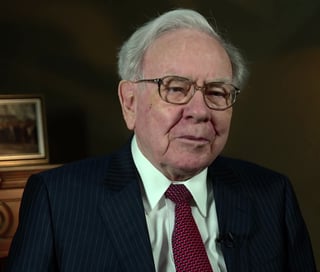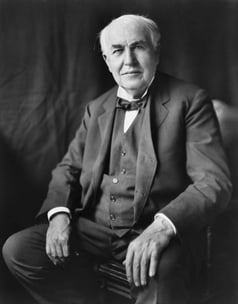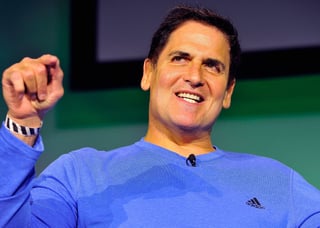
Most great leaders suffer from atychiphobia. No, it’s some fatal medical condition, but it can feel almost as debilitating. It’s the fear of failure, and it’s something all of us must overcome if we want to make a lasting, meaningful impact on the world.
Logically, most of us know that failure is an inevitable part of life, and even more so when you’re working toward big goals. Why, then, can the thought of it be so paralyzing?
Believe it or not, it has very little to do with ability or self-confidence. It has everything to do with perception. To help us understand why failure can be so dang terrifying, we’ll take a dive into the psychology behind the fear of failure. Then, to help us move past it and be the best leaders we can be, we’ll examine some techniques used by the greatest leaders past and present to overcome it.
Society’s Perception
According to behavioral experts, the most far-reaching reason we’re afraid to fail is because we’re worried about what other people will think. Think about it—we’re taught to want the big house, the fancy car, the luxurious vacations. We live in a society that glorifies success! And although everyone fails at some point or another, the act of failure is largely considered socially unappealing.
As psychologist Guy Winch explains, a fear of failure is essentially a fear of shame.
“People who have a fear of failure are motivated to avoid failing not because they cannot manage the basic emotions of disappointment, anger, and frustration that accompany such experiences,” he writes, “but because failing also makes them feel deep shame.”
It spills over to an individual level, as well. Most of us have one or more key people in our lives that we want to make proud, whether it’s a parent, a spouse or a mentor. We don’t want to disappoint that person, so we avoid behaviors that might put us in a position to fail. It’s something we do with the best of intentions, but by doing it we severely limit our own potential.
Our Own Perception
 Equally to blame (and even more complex) are our own perceptions related to failing.
Equally to blame (and even more complex) are our own perceptions related to failing.
If you’ve experienced a trauma in your past, your fear of failure may have deep emotional roots.
Dr. Susanne Babbel works closely with patients who suffer from post-traumatic stress disorder and says for some, the heightened emotional state surrounding successes and failures can feel uncomfortably close to the same emotional state they experienced during trauma.
“In order to have a healthy relationship with success (and its flip side, failure or disappointment),” she writes, “the first step is to learn to differentiate between feelings of excitement and a ‘trauma reaction.’”
Even if you haven’t experienced a significant trauma, though, your fear of failure can still feel stifling.
It’s in our brain’s nature to draw conclusions based on events that happen to us, but this natural wiring can get us in trouble where failure is involved. We sometimes make the illogical mental leap that if we fail at one thing, we must be a failure at everything. Rings pretty true when you think about the last time you had a really bad day, doesn’t it?
At the end of the day, failure just feels bad. Why would we want to do something that feels bad? Well, because it’s a must-do on the path toward our wildest dreams. So let’s look to the experts—some of the greatest leaders ever—for tricks we can use to get over our fear of failure and start conquering our goals.
1. Focus On What You Can Control
Part of what makes failure so scary is that we can do everything in our power to make sure things work out and we can still crash and burn. It’s out of our control, and that can be enough to drive even the most prepared entrepreneur crazy! Great leaders overcome the fear of failure by focusing unwaveringly on what they can control.
 Most people would agree Nelson Mandela is one of the greatest leaders of modern time. He worked tirelessly to end South African apartheid, became the first elected president of the country, and was lauded with the Nobel Peace Prize and the US Presidential Medal of Freedom, among hundreds of other honors.
Most people would agree Nelson Mandela is one of the greatest leaders of modern time. He worked tirelessly to end South African apartheid, became the first elected president of the country, and was lauded with the Nobel Peace Prize and the US Presidential Medal of Freedom, among hundreds of other honors.
But Mandela’s life was wracked with struggle. In 1962 he received a sentence of life imprisonment for conspiring to overthrow the government, a judgement that would leave most of us feeling powerless and defeated.
Not Mandela. He spent his time in prison working to make a difference on things within his control, studying religion, campaigning for better prison conditions and serving as a leader among his imprisoned peers.
During his time in jail, Mandela reportedly kept a scrap of paper with the lines of a favorite poem that he would often recite to the other prisoners. It was William Ernest Henley’s “Invictus,” which ends with these lines: ‘I am the master of my fate. I am the captain of my soul.’
They’re words that no doubt guided Mandela’s penchant for focusing fearlessly on the things within his control and forgetting the rest. It’s a key lesson for us if we want to overcome the fear of failure.
Related: Overcoming the Fear of Entrepreneurship
2. Develop Your Sense Of Competence
Do you feel competent at what you do? All of us experience “imposter syndrome--” the feeling that we’re not qualified to be doing—at one point or another. But does it happen to you on a regular basis? If the answer is yes, you may have a competence issue that’s contributing to your fear of failure.
A preliminary study by a research group out of Carleton University investigated the relationship between self-determination, fear of failure, procrastination and competence. The study focused on undergraduate students and aimed to gauge how one or more of these qualities in a student influenced or predicted the others.
Not surprisingly, the study found that individuals who exhibited a high degree of self-determination (described by researchers as a natural tendency toward active engagement and psychological growth) exhibited a lesser degree of procrastination. Fear of failure, on the other hand, was associated with a higher level of procrastination, which explains how many times when we’re afraid to fail at something, we simply put it off.
But there was one interesting exception to the study findings. Individuals who exhibited both a fear of failure and a high sense of competency did not show the same correlation with procrastination. In other words, students who felt a level of competence about what they were doing went through with it even if they felt afraid to fail. It’s a big flashing sign pointing at competence as an antidote for the fear of failure.
 One great leader who personifies this lesson is Warren Buffett. The “Wizard of Omaha” is known for his wealth and shrewdness when it comes to investments, and to many it would seem he’s impervious to fear. Or, perhaps he’s just highly competent.
One great leader who personifies this lesson is Warren Buffett. The “Wizard of Omaha” is known for his wealth and shrewdness when it comes to investments, and to many it would seem he’s impervious to fear. Or, perhaps he’s just highly competent.
The investor is known for being a voracious reader, reportedly blowing through some 500 pages per day. Warren Buffett’s appetite for learning is insatiable, and it’s what he credits with his massive success.
“I read and think," Buffett told Time Magazine. "So I do more reading and thinking, and make less impulse decisions, than most people in business.
When you’re constantly expanding your pool of knowledge, you feel more competent—not just in your business but in diverse areas of life. And, as great leaders like Warren Buffett teach us, feeling competent is an effective tactic for overcoming the fear of failure.
Related: The Defining Qualities of a Great Leader and How To Cultivate Them In Yourself
3. Remember That It’s Not All Or Nothing
Many of us suffer from tunnel vision. And certainly, focusing like a laser on one thing is an important step toward actually achieving that thing. But too often, we tie our sense of self-worth to the outcome of a single thing.
If I fail at this, we reason, it’s all over. Thus, we’re terrified of what will happen if we do fail. What will become of us?
Well, as great leaders teach us, we’ll be just fine, whether it’s one failure we must endure or a hundred. It’s never all or nothing.
 We’ve all heard the story of Thomas Edison trying for years to find a practical way to make the electric lightbulb accessible for residential use. The challenge for him lie in finding the correct material to serve as the lightbulb’s filament.
We’ve all heard the story of Thomas Edison trying for years to find a practical way to make the electric lightbulb accessible for residential use. The challenge for him lie in finding the correct material to serve as the lightbulb’s filament.
He tried one material. It failed.
He tried ten materials. It failed.
He tried a hundred materials. All of them failed.
At that point, most of us would have called it a wash and thrown our electric lightbulb dreams out the window. But Edison didn’t stop at a hundred or even a thousand failed attempts. He tested six thousand different materials before he finally discovered the winner (carbonized bamboo, in case you were wondering).
If Edison had viewed any of his attempts as “all or nothing,” he would have given up much too early. Instead, he knew that success is actually made up of a series of failures, each one leading him closer to the eventual correct answer.
Mark Cuban is a great leader of modern times who possesses this same dogged pursuit of success in spite of failure.
 Most of us know Cuban as the spirited Dallas Mavericks owner and Shark Tank regular. We don’t know him for the sales job he got fired from or the powdered milk company he started and failed at.
Most of us know Cuban as the spirited Dallas Mavericks owner and Shark Tank regular. We don’t know him for the sales job he got fired from or the powdered milk company he started and failed at.
“It doesn't matter how many times you fail,” Cuban told Entrepreneur Magazine. “You only have to be right once.”
Even the multi-billionaire isn’t immune from the fear of failure.
“I fear failure, but I won't let it stop me,” he said in his Entrepreneur Mag interview. “Sometimes you just got to do it or else it just doesn't happen."
Whether it’s your first failure or your 101tinst, remember that it’s not all or nothing, it’s simply one more stepping stone on the path toward success.
I love how psychotherapist Tina Gilbertson sums up this concept in an article for Psychology Today: “you don’t explore the Grand Canyon by leaping off the edge.”
True leaders know that to overcome the fear of failure, you have to take it one step at a time.
4. Practice Mindfulness
Our gut instinct around the fear of failure is often to simply ignore it. If we pretend it doesn’t exist, it won’t affect us, right? Come on, you know better than that!
There’s a healthier and more effective way to deal with the fear of failure than sweeping it under the rug, and that’s by mindfully acknowledging it.
In a study led by Norway’s University of Bergen, researchers followed a set of students through a mindfulness-based stress-reduction program to deal with academic or emotional challenges and the fear of failure. The students opted into the program after visiting the university’s Student Counseling Service.
During the eight-week program, the participating students were trained in mindfulness-based stress reduction techniques including meditation, yoga, group discussions and daily homework assignments, all of which centered around “paying attention, on purpose, in the present moment, and nonjudgmentally to the unfolding of experience moment by moment.”
Upon completing the program, participants reported that the mindfulness-based techniques they’d learned helped them achieve a sense of inner calm, gain control of their bodies’ response to stress, and most importantly, transition their feelings of fear into healthier feelings of curiosity around learning.
 As leaders, we can use these same mindfulness techniques to help us overcome our own apprehensions about failure. Oprah Winfrey is a major proponent of mindfulness, asserting that daily meditation and willful mindfulness have been responsible for transforming her life.
As leaders, we can use these same mindfulness techniques to help us overcome our own apprehensions about failure. Oprah Winfrey is a major proponent of mindfulness, asserting that daily meditation and willful mindfulness have been responsible for transforming her life.
“The outside world is constantly trying to convince you you're not enough. But you don't have to take the bait,” Winfrey writes. “Meditation helps you resist.”
She credits mindfulness with helping her tune out what the rest of the world is saying and focus on what’s important: overcoming fear, achieving her goals and being at peace with herself.
If you want to be the best, you have to learn from the best, and overcoming the fear of failure is no different. By borrowing the same techniques used by some of the world’s greatest leaders, we can surpass our own limitations, master our fears and achieve the impossible.
Read more about becoming a fearless leader in the articles below.
Overcoming The Fear Of Entrepreneurship
The Defining Qualities of a Great Leader and How To Cultivate Them In Yourself
















